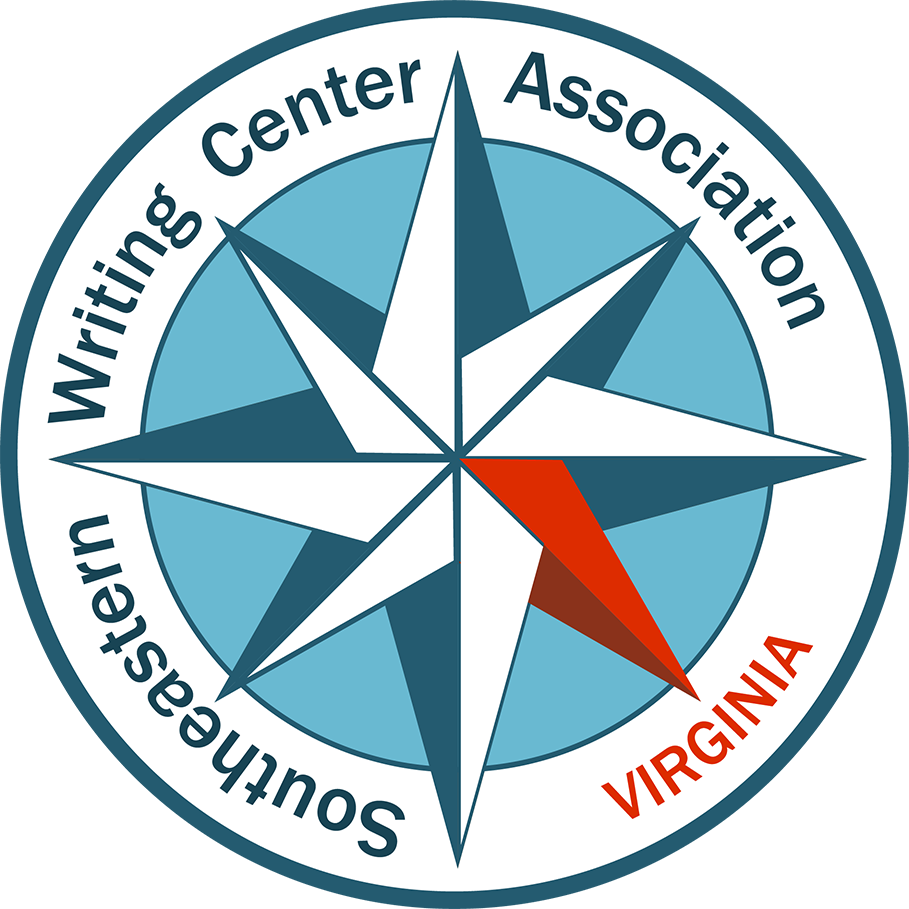
Asking Questions
CALL FOR PROPOSALS: VIRGINIA TUTOR COLLABORATION DAY 2022
Download Call for Proposals (pdf)
PROPOSAL DEADLINE: MONDAY, OCTOBER 3
CONFERENCE: SATURDAY, NOVEMBER 12, 2022 (VIA ZOOM)
________________________________________
SPONSORED BY THE VIRGINIA NETWORK OF THE SOUTHEASTERN WRITING CENTER ASSOCIATION-VIRGINIA (SWCA-VA)
HOSTED BY THE WILLIAM & MARY WRITING RESOURCES CENTER
________________________________________
The SWCA-VA invites writing center tutors to submit proposals for TuColla-VA 2022. The theme for this year’s conference is “Asking Questions.”
In their introduction to The St. Martin’s Sourcebook for Writing Tutors, Christina Murphy and Steve Sherwood encourage tutors to “develop an informed practice.” “The know-how of good tutors,” they write, “comes from a willingness to reflect on their efforts and to keep learning” (9). Effective tutors, in other words, adopt an attitude of inquiry. They consider both successes and failures and ask “What can be learned?” This approach -- called a “growth mindset” by psychologist Carol Dweck -- requires tutors to cultivate their curiosity and then use their discoveries to shape their behaviors. At the 2022 Virginia Tutor Collaboration Day, we’ll focus on topics related to this and other forms of inquiry. In other words, we’ll explore all the possibilities of questions and questioning in the writing center.
Our conference theme is purposefully broad in order to invite a range of session topics. Here are some ideas -- in the form of questions! -- to spark your thinking:
• What are good questions in the context of a writing center session? And, on the flip side, what are bad questions? How can a tutor’s questions shape a session? How can we design effective questions that increase student engagement?
• What questions should we ask about standard writing center practices? How does writing center lore (the traditions and practices we accept without question) shape our work, and what forms of inquiry can we use to examine and test that lore?
• What role does the writing center play in your institution? Is there value in questioning, reframing, or expanding that role? How can the writing center provide feedback to the institution so that both can change and grow?
• What assumptions do we make about the student clients who use our services? Should we challenge those assumptions? How? With data? Feedback forms? Surveys? Student advisory boards?
• How do questions function on writing center appointment forms, client reports and surveys, feedback forms, etc.? What questions do you ask on your forms, and why? How can we use our forms to ask better questions that help us improve and grow?
• How can we ask for and use feedback to enhance our development (as writers, as tutors, as citizens)? What can we do to cultivate a growth mindset and remain open to change?
• What is the role of questioning in the writing process? What practices will enhance the exploratory phase of writing, the work of drafting, and the feedback and revision phase? What tools has your center developed to help novice writers embrace questioning in the writing process?
• What is the role of listening -- active listening (in sessions, in community) -- as a means to deepen our understanding of our student clients and others? How can we become better not just at asking questions but at listening to the answers?
• What is the role of questioning (or of inquiry) in building accessible, inclusive, welcoming, and resilient communities?
• What are you wondering, researching, exploring? What questions do you bring to your writing center work?
Presentation Formats
We invite proposals for sessions in the following formats:
• Individual presentation, which organizers will group together by related topics (3 separate presenters, 15 minutes each, 15 minutes for Q&A with all 3 presenters)
• Roundtable discussion (2-4 presenters who submit a proposal together) (1 hour)
• Workshop (2-4 facilitators who submit a proposal together; emphasizes participant interaction) (1 hour)
• Asynchronous presentation (video recording with slides)(1-3 presenters, up to 15 minutes)
• Digital poster session (developed by 1-3 presenters using slides, website, Canva, or Prezi)
Conference Links
Proposals are due Monday, October 3, 2022.
Submit a proposal:
TuColla-VA 2022 Proposal Form
Register for the conference:
TuColla-VA 2022 Conference Registration Form
NOTE: All members of a presentation group should register individually for the conference.
Tentative Conference Schedule:
10:00-11:00 Keynote
11:00-12:00 Session A
12:00-1:00 Lunch with Breakout Rooms in Zoom
--with focus groups that allow for cross-institutional conversation
1:00-2:00 Session B
2:00-3:00 Session C
3:00-4:00 Q&A and Wrap-Up
Questions? Contact Lori Jacobson, TuColla 2022 organizer, SWCA Virginia State Representative: ljacobson@wm.edu
________________________________________
References:
Dweck, Carol S. Mindset: The New Psychology of Success. 1st ed., Random House, 2006.
Murphy, Christina, and Steve Sherwood. The St. Martin’s Sourcebook for Writing Tutors. 4th ed., Bedford/St. Martin’s, 2011.
Thompson, Isabelle, and Jo Mackiewicz. “Questioning in Writing Center Conferences.” The Writing Center Journal, vol. 33, no. 2, 2014, pp. 37–70. JSTOR, http://www.jstor.org/stable/43443371. Accessed 5 July. 2022.
Capdevielle, Matthew. “Why Do You Ask? Questioning the Question in the Writing Center” Another Word, University of Wisconsin - Madison, 26 March 2012, https://dept.writing.wisc.edu/blog/why-do-you-ask-questioning-the-question-in-the-writing-center/Accessed 5 July. 2022.
